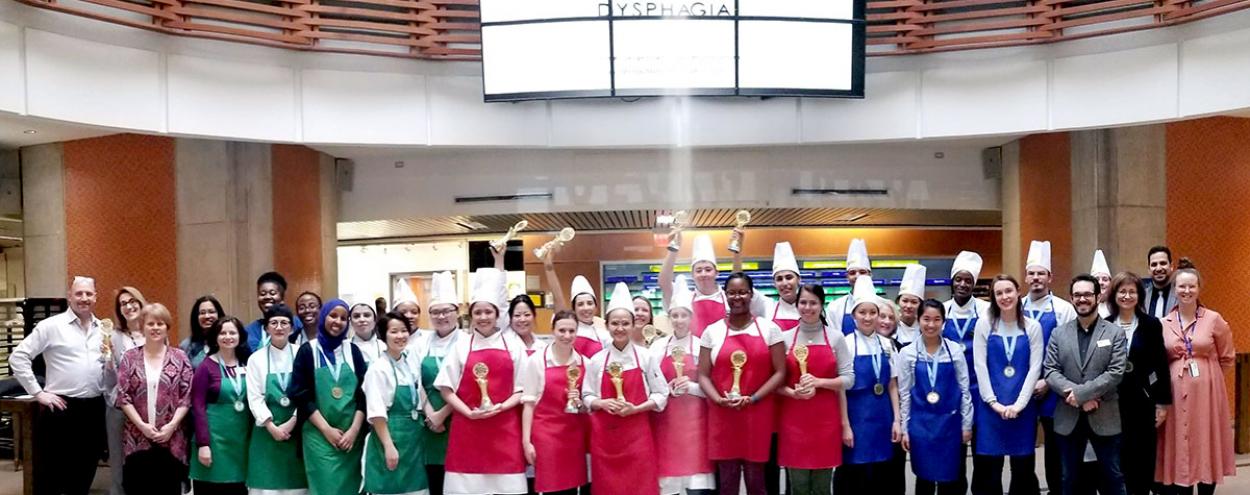
Before the college closed due to COVID-19, a group of George Brown College students completed a project to help people with swallowing issues – also known as dysphagia – have a more appealing and appetizing dining experience. Part of George Brown’s partnership with Baycrest, the Top Chef Dysphagia project involved more than 40 participants including students from three of George Brown’s programs – personal support worker, culinary management and food and nutrition management – as well as speech pathology students from the University of Toronto and clinicians from Baycrest. After several months of hands-on learning, interprofessional collaboration and mentorship, the project culminated in a cook-off on March 9 where students prepared a full meal for an elderly person with swallowing issues.
“The idea started by thinking about food and the elderly residents at Baycrest. We wanted to enhance the dining experience for them,” said Debbie Bonfield, Field Partnership Coordinator, George Brown College. “This is a niche area that is needed, because food is such a critical part of our lives whether we are healthy or have some health concerns.”
Leading up to the cook-off, students were divided into three teams, with support from clinicians. They were provided with a case study of an elderly person who has complex medical conditions in addition to swallowing issues. All teams were challenged to include brain-healthy ingredients and natural, nutritious thickeners in their recipes, which were evaluated by a panel of judges at the cook-off.
Enhancing the learning experience through interprofessional collaboration
Dr. Rosemary Martino, a professor of speech language pathology at U of T and senior scientist at University Health Network, was one of four judges at the cook-off. Martino commented that this learning experience helps to set students up for successful collaboration in their careers.
“The students experience first-hand the benefits of interprofessional health care delivery, which will serve them well in their own practice.”
Yelena Karimova, a student in the Culinary Management – Nutrition program, said that the Top Chef project was a continuous learning experience.
“This project allowed me to meet and work with professionals from different fields who work with patients who have dysphagia, such as dieticians, speech pathologists and personal support workers,” Karimova said. “I gained real-world experience and had lots of fun working with my team members.”
The power of partnership
Since the inception of the Top Chef Dysphagia project six years ago, 20 recipes developed by students were tested and standardized in collaboration with George Brown’s Food Innovation and Research Studio (FIRSt) for both home use and large-scale production. To increase access to the recipes, George Brown is now partnering with the ELLICSR Centre at University Health Network to turn them into a video series.
“This started as a small pilot project and grew from there,” said Bonfield. “Partnerships involving people from across disciplines can lead to great innovations, and you never know until you ask.”
